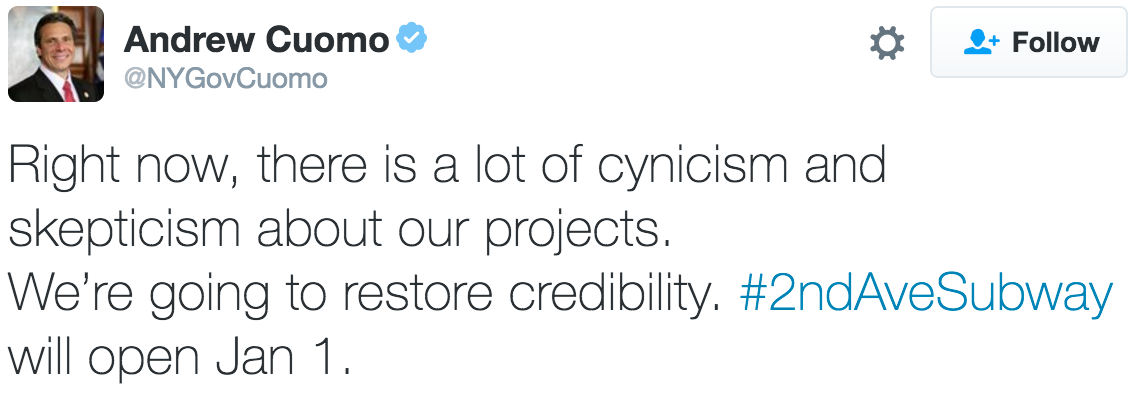We are developing the social individualist meta-context for the future. From the very serious to the extremely frivolous... lets see what is on the mind of the Samizdata people.
Samizdata, derived from Samizdat /n. - a system of clandestine publication of banned literature in the USSR [Russ.,= self-publishing house]
|
“Disturb us, Lord, when we are too well pleased with ourselves,
When our dreams have come true because we have dreamed too little,
When we arrive safely because we sailed too close to the shore.”
“Disturb us, Lord, to dare more boldly, to venture on wider seas, where storms
Will show your mastery, where losing sight of land, we shall find the stars.”
Excerpts from Drake’s prayer, 1577, written in Portsmouth as he began his circumnavigation of the globe. The quotation is given by John C. Hulsman, in “Brexit: Directions for Britain Outside the EU,” Institute of Economic Affairs, page 146. (The monograph was published shortly before the 23 June Referendum.) Here, by the way, is an item about Sir Francis Drake.
“The perceived ills of Anglo-American shareholder capitalism shown up in the bursting of the 1990 stock market bubble are not therefore a sign of some decrease in corporate morality – though there have been some clearly illegal practices which are rightly being dealt with by the courts – but due to the perverse incentives created for managerial `rent seeking’ by the regulations limiting hostile takeovers, and the unintended effects of fiscal policy through the double taxation of dividends. With the double taxation of dividends due to end, if all the regulations preventing hostile takeovers can also be repealed, the unregulated market for corporate governance would again provide checks on predatory managements. Executive compensation will begin to fall, accountants will have less pressure to cook the books, and the Anglo-American corporation would pursue the innovation, efficiency, and profitability that has till now been its hallmark.”
– Deepak Lal, from Reviving the Invisible Hand, page 202. (The book was first published in 2006.)
Though in other ways, we’re clearly in a new dark age. The fact that New York City is unable to conceive of building new bridges or subways or other infrastructure, and on the rare occasions when it tries to do so fails utterly, should tell us that. It’s like being a Roman in 500 AD and wondering at the giants of the past who built bridges and aqueducts, by then long lost technologies. I feel like I’m not just at the epicenter of capitalism here in Manhattan, but also at the epicenter of the cancer at the heart of it, to wit, the socialist destruction of the human will.
– Perry Metzger, in a private discussion
Why you should feel cynical about government projects, part umpteen thousand.
New York State’s Governor, Andrew Cuomo, proudly tweeted this today:
“Right now, there is a lot of cynicism and skepticism about our projects. We’re going to restore credibility. #2ndAveSubway will open Jan 1.”

He is referring, of course, to the imminent opening of a small segment of New York City’s long planned Second Avenue Subway.
Let us recall that planning for the Second Avenue subway began in 1919. That’s quite literally just short of a century ago.
Let us recall that construction began in 1972. That’s 44 years ago.
Let us recall that what is opening on January 1 is not even remotely a full Second Avenue subway. It is just three stations, at 96th, 86th and 72nd streets.
Let us recall that to get just these three stations, and just since the latest phase of work resumed in 2007, $4.5 billion, that’s billion-with-a-b, have been spent. That’s $1.5 billion per station. That’s $3.75 billion per mile for the 1.5 miles built to date, by far the world’s most expensive subway line.
The line has about 13 other stations to construct according to current maps, so completing this single subway line would cost about another $20 billion dollars. If we judge on the basis of the per-mile cost of Phase 1, the seven miles still remaining would cost another $26 billion. However, for projects like this, costs generally go up with time, not down, so the price may even be far worse.
No, Andrew Cuomo, this minor expansion of the transportation network, which is not yet remotely complete after a century of work, which has cost an astonishing sum and will cost vastly more if it is to ever be complete, has only reinforced cynicism, and has done nothing to restore credibility in government projects whatsoever.
The New York City subway system was mostly built privately, until the government forcibly took it over. Since the takeover, the system has stagnated, leaving a major metropolis with a public transportation network that has barely been improved since the First World War.
The system is grotesquely filthy, so noisy that scientific studies say routine users suffer hearing loss, is slow, is unreliable, is vastly overcrowded, often reeks of human excrement, is a sweat-box throughout the summer months, and yet, in spite of huge numbers of passengers, loses money year after year.
So what would I do to fix it? That should be obvious.
This is about Mike Raynor doing the Lord’s work by producing another yet computer model that makes happy predictions about the sugar tax. You can read it here. As always, the words ‘garbage in, garbage out’ spring to mind.
If you wish to take such models seriously, that is your look out. Regardless of whether obesity rates rise, fall or stay the same, campaigners will produce another model in a few years claiming that the rate of obesity in 2018 was lower than it would have been had there not been a tax. That, too, will be treated as fact by their supplicants in the media. It is impossible to prove that nanny state policies fail. The goal posts are always moved. Scientific claims in ‘public health’ are unfalsifiable, which is to that they are not scientific.
– Christopher Snowdon
All I have added to this excerpt from an article in the Times by David Aaronovitch is emphasis on what I consider to be the key words:
A free press must not be bullied by the state
Readers don’t know, but this happens all the time. Rich men and women threaten, companies threaten, gangsters and dope cheats threaten, aggrieved and time-rich individuals threaten; day in, day out letters before action flow like little streams of menace into our legal department. Almost every single time you expose someone or something, it happens in the context of legal threats. People don’t like it if you tell lies about them and they like it even less if you tell the truth.
Which brings me to the most important thing being considered by Ms Bradley. It goes by the tedious name of Section 40 of the Crime and Courts Act 2013 and is something that can be invoked, or not, by the government. It is, in essence, the stick that could be used to get newspapers and publications to sign up to the new state-approved press regulator, Impress.
What it says is that any publication not agreeing to be regulated by Impress will be subject to the costs of a legal action — even where it wins. Really. That’s what it says. Call the next Lance Armstrong a drugs cheat and even if he loses the case it will cost you hundreds of thousands. Well, no one in those circumstances would take the risk of running the story. These are not days in which newspapers make much if any money and the fastest way to bankruptcy would be to fall foul of Section 40.
And that of course is why, as sticks go, it’s a knout, a knobkerrie, a bludgeon. It would have to be because otherwise the British press, from the pinkest metro-sheet to the shoutiest judge-hating tabloid, will not sign up with the government-approved regulator.
Like all London-based libertarians of a certain vintage, I have fond and vivid memories of Tony Hollick, who died in October of this year. At the time when he was most active in the British libertarian movement, when that movement’s membership was numbered only in the dozens or less, people like Tony made a huge difference, attending and helping to organise meetings, writing and editing and, as is explained so well below, above all, arguing, which is what you are bound to do with ideas if you take ideas as seriously as Tony Hollick did. The moral and intellectual support that Tony supplied, in particular, to the late Chris R. Tame, was especially important and valuable. And see also this obituary of Tony Hollick, by Tim Evans.

Last week, on Wednesday December 7th, Tony Hollick’s funeral took place at Beckenham Crematorium, London. Below is the eulogy that his much loved godson, Gerald Hartup Jnr, wrote and read out on that sad occasion:
Tony was my godfather and I loved him dearly. He was one of my father’s oldest and closest friends and was much loved by all in the Hartup family.
He was a spectacular teacher, kind, generous with his time and very patient. As I was growing up reading philosophy, economics, politics and following current affairs I would always discuss these matters in depth with him. He was a superb sounding-board and I was very lucky to have spent so much time speaking with him. I learned a vast amount from Tony and am eternally grateful to him for that.
Tony did not like authority (huge understatement!). He particularly disliked authority when combined with a sense of injustice. He was a man with an extremely strong view on what is right or wrong and had an unbendable set of guiding moral principles. He was stubborn, passionate and had fire in his belly which would be shown in glorious style when he encountered something he considered wrong or unfair. This was a trait he displayed early on when as a boy he was expelled from two of the finest schools in the world – Dulwich College and Geelong Grammar School. A common theme behind both of those expulsions was a steadfast refusal to accept or yield to what he felt were unfair treatments and practices. He had a powerful sense of righteousness and this was always evident in the social or political causes he championed.
Tony is one of the most erudite people I have known. Not attending university did not hinder his accumulation of knowledge as he devoured swathes of books. His studies were broad, varied and extensive. His favourite fields were political philosophy and physics both in which he developed an awesome depth of knowledge. He was very thoughtful, intellectually curious and he carried himself with a scholarly disposition.
Politics was a big part of Tonys life. He had a unique take on matters and he would have described himself as a left leaning libertarian. In terms of political activity he was a founding member of the Libertarian Alliance, he worked at the alternative bookshop (a focal point of the Libertarian movement at the time), The National Association for Freedom (later the Freedom Association) and FOREST (Freedom Organisation for the Right to Enjoy Smoking Tobacco). He certainly practised what he preached. He was a self-styled defender of freedom political activist and he put his health and his body on the line for the cause. It is important that this is remembered.
He was always entertaining to debate with and wow, he loved to argue. As a child I would always hear my father on the phone with Tony arguing passionately about some political topic. As I got older and smarter the baton was passed to me and I too would spend considerable time on the phone with him arguing and debating whatever matter was at hand. It really could be anything – political, philosophical, religious, historical, moral, cultural, you name it – he would have a view on it and would argue it. I think he just really loved the sport of it. Verbal sparring must have been one of his favourite things to do and with my father and I, he had some tenacious and willing sparring partners. He could have made a very imposing barrister. I do pity the many hapless victims who would have stumbled into a debate with him unknowing or unprepared for his assault! Debating him was great fun, challenging and at times exasperating – it certainly sharpened up my and my father’s oratory skills.
He was an intriguing character with some fun interests. He was a tech savvy early embracer of computers and the internet. He loved science fiction, film and literature. The Lord of the Rings, Star Wars and The Matrix were sources he would often use for analogies or making comparisons from. Working on designing and producing electrically powered roller-skates was a hobby of his. He was a horologist and truly loved the beauty of watches. His prized possession was an Omega Speedmaster pre moon landing watch which he took immaculate care of for 50+ years, it gave him immense joy and he never tired of talking about it. He adored cars and motorbikes and over the years he owned some really cool vehicles. He was a cat person, long after his dear cat Beeper passed away he would affectionately recall stories about how brilliant, intelligent and lovable a creature Beeper was.
“Athens or Sparta?” was a question Tony considered crucial to ask when trying to get an understanding of a person. Of course, with Tony, it was never a simple question but the start of a long, playful and philosophical dialogue. It is very difficult to sum up a character as colourful and complex as Tony but to do so in one word I would choose “Athens”. He was unquestionably “Athens” and I think he would be happy with that.
That’s the New York Times which has been repeatedly asserting that higher minimum wages do not affect employment? It is indeed possible to have the most lovely arguments about how much a higher minimum affects whom but the assertion that there is no unemployment effect is simply an untruth.
– Tim Worstall
This explains a lot:

The European Union is moving into a new headquarters in Brussels, which features a huge glass atrium enclosing a bulging, lantern-like structure.
See an earlier posting here from way back about Parkinson’s Other Law.
LATER: Parkinson explains.
The first article was by Eve Livingston writing in the Guardian: “The state is an enabler of sexual violence. So what hope for the victims?”
The headline caught my interest, which lasted well into the third paragraph. She wrote,
Violence does not exist solely in the instant that blow meets body, but in the circumstances that facilitate it and the systems which excuse it.
My heart soared. Could it be that Ayn Rand’s argument that all state laws are ultimately enforced at gunpoint had penetrated the pages of the Guardian? For it is certainly true that the state facilitates and excuses its own violence, and I have long thought that this produces a climate of opinion that tends to facilitate and excuse violent acts by anyone.
‘Fraid not. It was just another rehash of the tired old trick of redefining “violence” to mean “anything I don’t like”. Ms Livingston thinks that the government spending less money than she thinks it should on women’s refuges is “violence”. As is the government spending less on anything, or talking in metaphors that might induce unpleasant thoughts.
If economic policy too accurately embodies its violent language of slashing and cutting,
Whatevs, thought I. And nearly missed a rather good point:
…legislation around crime and justice delivers an almost laughable irony. In some cases, the very laws purportedly designed to protect women from violence can, in practice, enable it: the criminalisation of various activities relating to the sale of sex, for example, is universally opposed by sex worker-organising collectives, on the grounds that it limits their ability to work safely – for instance, in groups or designated zones – and without fear of violence from both clients and state agencies.
I was surprised and glad to read this. Until now almost the only voice in the Guardian opposing the fashionable “Nordic model” put forward by an unholy alliance between old style authoritarian conservatives such as Caroline Spelman MP and Gavin Shuker MP (one of whom does and one does not have the abbreviation for “Conservative” written after their name, not that it matters) and new style authoritarian feminists such as Guardian regulars Joan Smith and Catherine Bennett, came from Melissa Gira Grant. Ably though the latter writes, she tends to be discounted because she would actually know. Dear me, we can’t have that.
I really was glad to see that Eve Livingston sees that laws that claim to protect women from violence can have the opposite effect. It is sad that she almost hid her message from me (and not only me judging from the comments) by that silly attempt to stick the label “violence” on something that, even if one believes it to be bad, is not violence. Ironically that same trick is played by the crusading politicians she rightly opposes. Click on the link relating to Gavin Shuker MP above to read the following (emphasis added):
The year-long parliamentary enquiry argues that prostitution should be seen as violence against women and an affront to sexual equality, but sex workers have reacted furiously to the proposals arguing that the criminalisation of clients will push sex work underground, further stigmatise women and put lives at risk.
The second article that surprised me is from the New Statesman. Sarah Ditum writes, “What’s missing from the transgender debate? Any discussion of male violence.”
One of those things that supposedly never happens, happened. Luke Mallaband was convicted of six voyeurism offences after a female student at the University of East Anglia found his phone hidden in the university library’s gender-neutral toilets. The probation report described him as “high risk of posing serious harm to females”.
Here I was simply and honestly surprised that a piece in the New Statesman admitted there was a potential problem at all. I had thought that the whole “transgender bathroom rights” issue was still so new and shiny, like a newly socialist country whose economy has not yet visibly gone to pot, that no one on the Left dared break ranks. But Sarah Ditum did dare, and despite the many poor arguments elsewhere in her article, she saw where Eve Livingston did not the danger in the attempt to use the emotions stirred up by a word as a substitute for argument:
“Inclusion” and “equality” are words with strong positive connotations, and those positive connotations can sometimes smother the problem of competing rights in a warm feel-good fuzz. On 1 December, Parliament debates the report of the Women and Equalities Committee into transgender equality: from reading it, you would have very little idea that the rights of women and the rights claimed by trans people have any points of conflict.
It is not that I have any particular opinion on whether gender neutral public toilets are a Good Thing or a Bad Thing in general. Of course they should be allowed, and of course gender segregated public toilets should be allowed. Libertarianism offers a way out of the contradictions about the “competing rights” of this or that group: respect the right of whoever provides the toilets in a premises to enforce what rules they think best and the right of potential users of the toilets to use those ones or go elsewhere as they think best.
The case is very simple indeed. Do you believe in freedom of speech or not? If you do then Stormfront gets to have a website detailing whatever it is that it misunderstands about the world. As does every other vile and hateful group from left and right. There is no shortage of sites insisting that Stalin had nothing to do with the Holodomor, that it was disease not starvation, that the starvation was just bad weather, that there was no campaign against Ukrainians and anyway, it never happened did it?
– Tim Worstall
This is the best official portrait in history. Ever.

NASA Astronaut Leland Melvin. Pure distilled essence of dude.
|
Who Are We? The Samizdata people are a bunch of sinister and heavily armed globalist illuminati who seek to infect the entire world with the values of personal liberty and several property. Amongst our many crimes is a sense of humour and the intermittent use of British spelling.
We are also a varied group made up of social individualists, classical liberals, whigs, libertarians, extropians, futurists, ‘Porcupines’, Karl Popper fetishists, recovering neo-conservatives, crazed Ayn Rand worshipers, over-caffeinated Virginia Postrel devotees, witty Frédéric Bastiat wannabes, cypherpunks, minarchists, kritarchists and wild-eyed anarcho-capitalists from Britain, North America, Australia and Europe.
|







